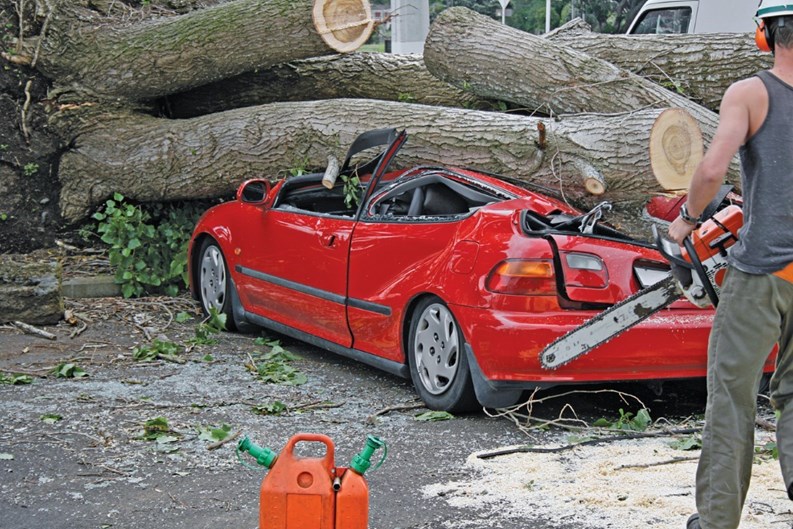Recently, a 36-year-old New York City restoration contractor was charged with multiple counts of workers’ compensation fraud and falsifying business records. He was hired as a sub-contractor, but he allegedly submitted three fraudulent certificates of insurance. In another case, a Suffolk County roofer allegedly passed phony certificates of workers’ compensation coverage as he took work at job sites around the county.
“Workers’ compensation certificate fraud exposes unsuspecting certificate holders to increased costs for insurance and increased liability for unprotected workers in the event of an accident,” NYSIF Chief Deputy Executive Director Francine James said in a press release. “All contractors and sub-contractors working in New York State must have a valid certificate of workers’ compensation insurance to prove coverage.”
Wayne Bellet, who has been a contractor for years and has always had the proper insurance, says that the cost of his insurance is going way up because the insurance industry classifies his business as dangerous—implying the same liability as say, a bridge contractor, for example. “They see my line of work with the scaffolding and the roofing as dangerous as the bridge worker and the tunnel workers with the potential for grave injuries,” says Bellet, who has over three decades of experience in the exterior maintenance and restoration trade.
He says that because of this, it’s been known that some contractors are deliberately misclassifying themselves as non-roofers just to bring down the cost of their premiums. He explains that his workers are protected by a brick parapet—a low wall that prevents workers from slipping off the roof, but it doesn’t stop the insurance industry from increasing the premiums.
Bellet says that unfortunately there will always be insurance fraud in the industry, but there are ways that a building can be protected when work needs to be done. Most importantly, he says to never enter into an agreement to do work with any contractor without knowing what insurance the contractor has. To find out, just ask.
The Proof is in the Paperwork
“The contractor should show proof of insurance,” says Bellet, “but you can also ask the insurance broker. Ask if he is insured to do whatever it is that you’re doing.”
C. Jaye Berger, of the Law Offices of C. Jaye Berger, an attorney specializing in construction-related litigation and co-op and condo issues, notes that one thing that co-op buildings do which gets them into trouble is that they fail to have a provision in the contract which states the contractor should provide proof of insurance, naming the building as additional insured and indemnifying the building.
She also says that the building should have a general liability policy—then when you hire the contractor there should be an agreement that the contractor will provide a certificate of insurance which covers Workers Compensation and general liability.”
“If they don’t have these things, even if you get the certificate from the contractor, it might not cover the building when an accident happens. If it’s a contractor’s own worker who gets hurt, that will usually not be covered under the general liability policy. The building should have their own insurance.”
If a contractor shows you their insurance, but the file is incomplete, Bellet says to ask to see the declaration page for coverage. The declaration page of the contractor’s insurance policy will explain what type of coverages the contractor has. Bellet is oh so proud of his declaration page which outlines all of the vital information about coverage, including such information as the name of the insured or insured party; the location of the property insured; the value and replacement value of property insured; the inception and expiration date of the policy period; amounts and limits of insurance coverage; deductibles; and the premium amount.
Another way of verifying the contractor’s insurance is to check with the appropriate licensing agency. According to the New York City Department of Buildings (DOB), all contractors conducting business with the department must submit or update their insurance. The DOB’s website, (www.nyc.gov), states that “all contractors that currently have an insurance tracking number issued by a borough office must update their insurances with the Licensing Unit.”
Legitimate New York State Insurance Fund certificates of insurance carry a unique verification number that allows contractors and homeowners to protect themselves against liability by checking the verification number of NYSIF certificates online at nysif.com.
All requests for insurance updates made to the licensing unit for the first-time must include original worker’s compensation, disability and liability (when applicable) certificates. The DOB website also explains how insurance certificates must meet certain paperwork requirements such as the inclusion of certain federal employer identification numbers, tracking numbers and more must be included on the certificate. The policy holder’s name and business address must appear (no post office boxes), liability certificates must be a minimum of one million dollars ($1,000,000) and there are other requirements too. Check out the website for more information.
Important Insurance Notices
If a contractor says they’ll get the insurance or promises you that they have it before the job begins, it is the responsibility of the association or management to make sure to follow up and get the right information. “Sometimes you find a contractor who doesn’t have the insurance you want and they come up with phony baloney ways to try and give you what you want,” says Berger. “They’ll tell you ‘my friend’s cousin says we can borrow the insurance,’ but they can’t borrow insurance.
This includes subcontractors such as riggers and window workers too. These subcontractors should also have proof of general liability and workers compensation. Just recently, according to the NYSIF, another contractor, this time a painter, was arrested and charged with workers’ compensation fraud. “It is always important to make sure that businesses pay an accurate price for workers’ compensation insurance, but it’s more important than ever in times when we find many businesses struggling to survive,” James stated in another press release.
In the Suffolk County roofer fraud case, the investigation revealed that the roofer allegedly presented the contractors with fraudulent NYSIF certificates indicating that Commercial Roof Services had valid workers’ comp insurance with NYSIF, leaving the contractors liable for insurance premiums totaling $10,000.
“If you are doing things the right way, you’re drafting a contract and asking them to provide these things,” says Berger.
What are the consequences for a contractor who is inadequately insured, or who falsifies their insurance documentation? “Again, if the contractor is inadequately insured, you would know that going into the contract,” says Berger. “For example, if the building and the attorney know that you’re hiring the contractor for a $3 million job, you need a certain amount of insurance and you’ll know that they have to have it before going forward. If you don’t have the right insurance for the right size project, then you don’t move forward.”
But let’s say that it was board member John’s responsibility to complete the necessary due diligence on the insurance and background of the contractor before the job began. Unfortunately, John’s a volunteer board member who has been overwhelmed in his personal and professional life. The contractor tells John that yes he’s insured and John decides to take his word for it, telling the board that it’s okay to continue on with the job. Unfortunately, something goes wrong and it’s found out that the contractor doesn’t have the right type of insurance.
John might feel horrible about not following up, but most likely he’s not in any trouble. “Your board members are volunteers and are serving on the board and they don’t get punished as long as there are no other wrongdoings going on,” she says.
If the contractor fails to have the right insurance, should a board buy it for him or fire him? “One option is to fire him and hire someone else, but that’s bringing in new people, etc., or you can smoke the peace pipe and buy the insurance coverage for them if you’re in love with the guy and he’s doing a stellar job,” says Bellet. “You can take it out of your bill.”
Although that might seem a little unorthodox, the bottom line is that insurance is a necessary part of any contractor's job and it’s an easy thing to prove.
Lisa Iannucci is a freelance writer, author and a frequent contributor to The Cooperator.







Comments
Leave a Comment